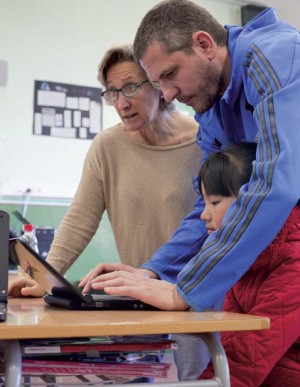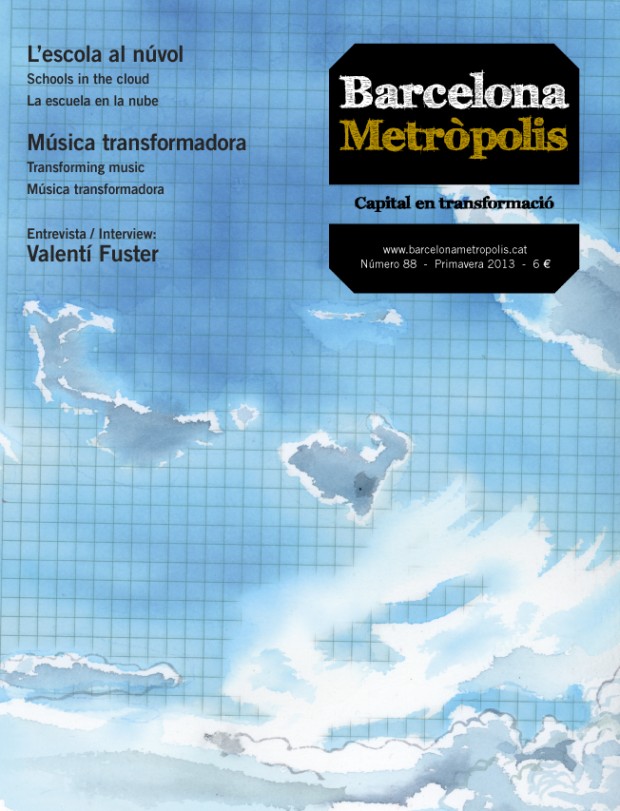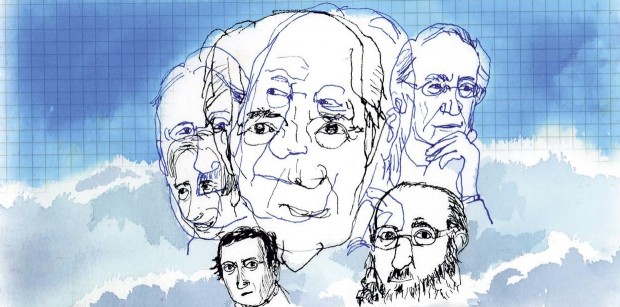When we ponder the core questions of our society, and education is one of them, we must be careful not to put the cart before the horse. We live in uncertain times and, as if skating on thin ice, we seek safety through speed. But that makes it even more necessary not to be blinded by the dizzying pace at which changes are taking place and the urgency of immediate problems.
Suddenly, it is as if the Internet were not only the fabric of our lives, as Manuel Castells said, but also the solution. All pedagogy, before undertaking any practice, should reflect on the purposes of its action, on what social and personal model it will promote. Hence, every now and then we need to ask some questions. What society do we live in and what society do we want to live in? What is the prevailing idea of education and what would we like it to be? If education must be provided by teachers, what are we like and what should we be like? Let us recap on some answers.
The current state of our social conditions was defined by an excellent metaphor from the sociologist Zygmunt Bauman in the last year of the twentieth century: we are a liquid society. The kind of life that is beginning to prevail is about constantly beginning and severing all our bonds (emotional, occupational, family and educational). A way of life that socially legitimises the experience of instability and constant change. And the power of the Internet and its applications has permitted many of the social practices characteristic of this utterly liquid life. Does anyone remember how, not too many years ago, it was impossible to cancel or change the time or place of an appointment half an hour beforehand? If you think about it, such an anecdote has far-reaching implications. It can totally change the way we relate to others and the value we attach to our commitments, for example. However, once this system of social relationships has been implemented, can we only survive by taking on the characteristic of liquids? Adapt and accept instead of being resistant and belligerent?
Applying the liquid metaphor to education is ambivalent. Surely we would not wish the conformist significance of quietly accepting what is to come. But we might like the Taoist idea of being like water, which in spite of difficulties, always remains, in one form or another. Neither stone nor arrow can harm it, but, on the contrary, with the passing of time it is water that eventually gives the rock its shape. Pedagogically speaking, the best thing Bauman ever did was, in a little-known essay, to rescue a forgotten psychologist called Gregory Bateson, who coined the following concept in the sixties: tertiary learning. It refers to the person who has acquired the ability to modify the alternatives which until then they had learned to expect and control. The individual who attains the tertiary level of learning has learned to change habits already acquired and do so non-traumatically. In a nutshell, their personal stability does not depend on the stability of their social bonds. Could this perhaps be the most important educational objective that an educator today should have?

New educational trends inspired by Jacques Rancière support the concept of the teacher as facilitator, whose function should be simply to mobilise the will of students and enhance their attention. In the picture, teachers at the Pere Vila School in Barcelona’s Sant Pere district teaching a pupil how to use the computer.
The debate as to whether schools and teachers should be the providers of knowledge is interesting, but we cannot be satisfied with simple answers that stifle our thought. The die-hard defence of a school that conveys truths that should protect us from permanent doubt, which some pedagogues expound, is too anachronistic. On the other hand, attributing the current problems of society and schooling to the principles of the active school is pedagogical reductionism. It goes deeper than that. Although in different regions pedagogical activism was translated in different ways over the years, the fundamental aspect is related to a global “spirit of the times”, which has changed. The same has occurred with the decline in intrinsic authority of the figures, not just teachers, who traditionally held it.
It is clear that education cannot turn its back upon the most powerful tool for transmitting information that exists today. But it is also evident that teachers do not only convey information. They would not do so even if they simply delivered monologues from the beginning to the end of the class. Because, let us not forget, the school that we know, an institution linked to the nation state and which has a brief history of only 200 years, is more than that. And not because it only educates in values and attitudes, but because above all it conveys a more powerful basic idea, one which social critics such as Ivan Illich have highlighted – schools teach the false need to be taught. Now that idea is revolutionary.
In 1979 the philosopher Lyotard wrote that post-modernism was disbelief of the great stories. The school is one of those great stories in which, as of the second half of the twentieth century, people began to lose their belief. Against all the modern tradition of the nineteenth and twentieth centuries, which assumed that education was a synonym and a tool of liberation, the idea that a certain way of educating does not provide release is gaining credence. There is a break in the consensus which both the left and the right, secular and Catholics, had progressively built regarding the need for education provided by the state and applied in the form of across-the-board education policies.
But in recent years, and often using the possibilities offered by networked technologies, increasingly more educational movements are appearing and asserting the contrary. Homeschooling, unschooling, flexischooling, invisible learning, expanded education, common learning and many other variants propose different types of education than that provided by schools. Particularly when we understand schools as institutions in which syllabuses are narrowly imposed by governments. The basis of these movements is the criticism levelled years ago by authors such as John Goodman, John Holt and Ivan Illich, who warned us that schooling could lead us to dystopias such as Orwell’s 1984 or Huxley’s Brave New World. Especially the latter, where people no longer have the habit of thinking critically and live in a peaceful slumber that cripples them.
Some of these pedagogical currents share a certain discourse that could be called liquid pedagogy. In short, they agree that education should be imparted through methods that are constantly adapted to each context and situation, and that the ultimate aim of education is to promote a model of person that can adapt to change and uncertainty and with the capacity to interpret reality without the need for universal and absolute reference points.
At the same time, there is a group of educators who, based on Jacques Rancière’s idea of emancipation, are questioning the figure of the teacher. According to this idea, neither the traditional school, nor the active and progressive school of John Dewey, nor Paulo Freire’s critical pedagogy are truly emancipatory. There are three types of teachers who do not have a liberating effect: a) the explainer who regurgitates everything to be memorised; b) the Socratic teacher who pretends to be ignorant so as, through subtle questions, to reach the pre-established target; c) the facilitator who understands knowledge as an active construction and places the student at the centre but who, alas, regards the latter as incapable of learning without the patterns and sequences they prepare according to their learning needs. A fourth type, on the other hand, d) the emancipatory teacher, assumes and proclaims that everyone can learn by themselves. The teacher only has to mobilise the student’s desire and promote their attention.
Could the emancipatory teacher be a good model for the new digital paradigm? Every teacher should think and decide for themselves. But for this to be so, the faculties of education should offer fewer recipes and dogmas and more pedagogical thinking. Only then can we teachers challenge the latest political-pedagogical model before taking important decisions. Otherwise, as Herbart, the founding father of pedagogy wrote, “mere practice will only produce routine, and quite limited at that”, We hope, therefore, that the importance of pedagogical reflection is not lost over time, like tears in the rain.





Pingback: L’escola. De la crisi a la revolució | Núvol